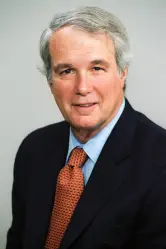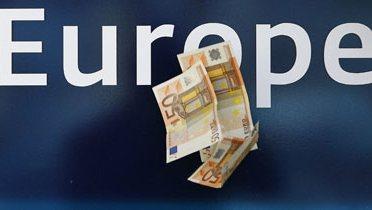Editor’s Note: The National Perspectives on Global Leadership (NPGL) project reports on public perceptions of national leaders’ performance at important international events. The sixth series of commentary focuses on the Cannes G-20 Summit and discusses the ongoing euro crisis, the rising G20 profile, and the growing social mobilization around concerns with the global crisis. Read the other commentary »
OVERVIEW: COMPARATIVE PERSPECTIVE ON THE CANNES G20 SUMMIT
Despite the euro zone crisis, the profile of the G20 was raised in many member-state capitals, and G20 leaders and media did focus on other agenda items and domestic issues.
Reporting from 13 G20 countries reveals that, through the eyes of the national media, the euro crisis “overwhelmed,” “dominated,” “totally sidetracked” or “hijacked” the Cannes G20 Summit on Thursday night through Friday afternoon, November 4-5, 2011. Only Argentina seems to have been captivated by the bilateral meeting between US President Barack Obama and their leader, President Cristina Kirschner, to such a degree that it overshadowed the global preoccupation with the Greek debt crisis and its implications for the euro zone and the global economy. As she did at other G20 summits, Cristina Kirschner found a way to project her own priorities and portray them to the Argentine public through deliberate preparation with her cabinet beforehand and in regional consultations, and this also held true at her appearance at the B20 (G20 business summit) held just before the G20.
Other Issues
G20 leaders and the national media in G20 capitals were, nonetheless, able to focus on several other G20 issues of vital interest to their publics.
Kirschner and other leaders were indeed able to project to the national media in their capitals other issues and priorities, despite the euro crisis capturing public attention around the world. The two most frequently profiled international issues in the G20 capitals surveyed here, were the financial transactions tax proposal and the G20’s work on tax havens that began in London in 2009. Among the other issues discussed was the strong focus on development by Chinese President Hu Jintao and on least-developed countries by South African President Jacob Zuma. The Financial Stability Board (FSB) action on “too big to fail” banks was highlighted by The Washington Post on Saturday morning, as well as by the Canadian media, in part because Canada’s central bank governor, Mark Carney, was named head of the FSB, replacing Mario Draghi. Japanese Prime Minister Yoshihiko Noda was able to keep his country’s media focused on his priorities.
What was also of interest to NPGL country observers was the extent to which some G20 leaders were able to profile their domestic concerns, linking the Cannes G20 deliberations on either Europe or the on-going G20 agenda to jobs and growth at home. Canadian Prime Minister Stephen Harper highlighted the fact that the G20 Action Plan on Growth and Jobs, which was endorsed in Cannes, corresponded exactly to the title of his government’s 2011 budget. Brazilian President Dilma Rouseff highlighted the International Labour Organization’s social initiative on the G20 agenda, likening it to her government’s domestic program of social inclusion.
South Africa’s Jacob Zuma emphasized jobs as crucial to South Africa’s future, which coincided strongly with the Congress of South African Trade Unions labour leader’s meeting with Nicolas Sarkozy in Cannes. U.S. President Barack Obama’s major thrust in Cannes was to support the Europeans’ efforts to resolve the euro crisis themselves as being critical to jobs and growth in the United States against a background of a U.S. job report the same day. In her appearance at the B20 meeting, Cristina Kirschner declared herself against the “anarchic financial capitalism” that had dramatically impacted people in the real economy, not just bankers and banks.
Despite the overwhelming force of events in Greece, Italy and global financial markets on the same days that the Cannes summit took place, events which riveted the world’s attention, G20 leaders and the national media in their capitals were, nonetheless, able to focus on several other G20 issues of vital interest to their publics.
Communications
The global crisis managed to create a higher profile for the G20 in many G20 capitals.
The combination of the euro crisis drama and the growing social mobilization around peoples’ concerns with the global crisis, managed to create a higher profile for the G20 in many of its capitals.
Our NPGL colleagues from China begin their commentary by saying: “the first thing that should be reported from Beijing is that China’s media have begun to pay more attention to the G20 than in the past.”
From Germany, we learn that “the Cannes event generated a higher volume of media coverage than previous G20 summits.”
“This summit had a great deal of relevance for the Argentine public,” we are told by our NPGL colleague in Buenos Aires. “After London, the summit in Cannes has received the greatest attention by the media,” she adds. “The Cannes summit was seen to have a large impact on the Argentine public.”
And in South Africa, “surprisingly, media coverage was not cynical, such as ridiculing G20’s role, which we have witnessed in the recent past. Again this probably was due to the magnitude of the issues at stake, and in that sense, probably more closely resembles the political dynamics around the London summit.”
From Tokyo, “Japanese public and media attention to the G20 meeting in Cannes was higher this time.”
But, interestingly, in contrast to massive attention to the G20 summit held in Seoul a year ago, “very little attention” was paid to the Cannes G20 Summit by the Korean media and public.
Other Leaders, Leading
In this intense context, two sets of leaders stood out visibly in most G20 capitals as the euro crisis–G20 drama unfolded: Nicolas Sarkozy and Angela Merkel battling for the core of Europe against George Papandreou and Silvio Berlosconi on the periphery. Barack Obama was given lots of space in the media in France, the United States, Mexico, Australia and South Africa, but he was seen as “marginal” in Germany, “detached” in the United Kingdom, and “not given special attention” in Canada, for example. Christine Lagarde, the new head of the International Monetary Fund (IMF), seemed to be given more play in the G20 emerging market economies media, than in the G20 industrial economies of the West. Leaders were varied in the intensity of their participation in the summit and their interactions with the global and national media.
Concluding Remarks
In the end, the euro crisis took centre stage at the Cannes summit in the eyes of most of the world, but as observed through the media in G20 capitals, other issues managed to surface for public attention, and national leaders from G20 countries were able, in several cases, to project their own priorities amid the welter of events in Athens and Rome, as well as Cannes, during those two turbulent days in early November 2011. The profile of the G20 was strikingly more visible in many capitals, but serious questions were raised in Mexico and Korea, especially about the future of G20 summits.
Our NPGL colleague in Mexico noted that “the fact that no specific goals, financial commitments or timelines were set for the principal agenda items included in the communiqué was highlighted in commentaries [in Mexico] that focused on why the leaders’ level G20 is not really the ‘premier’ forum its founders proclaimed it to be and why its very existence as a global steering committee is at stake.” From Korea, we heard that “the image of the G20 leaders that prevailed in Korea was one of a confused and ineffective bunch.” The sense in Australia, however, was that the G20 is “the best option on offer.”
As Mexico prepares to take up the presidency next year, and as we look ahead to Russia and Australia’s presidency in the years ahead, it is clear that many challenges remain.
UNITED STATES
As surely was the case in other countries, the Greek debt drama, with the proposed referendum, withdrawn referendum and the vote of confidence, overshadowed and seemed to stymie action by G20 leaders in Cannes. But the competing headlines in Washington focused on the jobs report for October, which showed mixed results with public sector jobs falling significantly while private sector employment grew steadily again, and the debate in Congress between Republican and Democratic versions of a jobs bill. CNN’s John King was called upon to comment on the G20 summit from his perch in Iowa, reminding viewers that there was a seamless connection between the president’s efforts to push Europeans to deal with their debt and financial fragility, and his reelection prospects.
There is no doubt that in Washington, Athens was more visible than Cannes, and that the G20 summit took a back seat to the euro crisis. The Financial Times opined that the “forum’s high ambitions delivered meager results” as a headline. This certainly is borne out by the communiqué, which indeed did not push forward the specifics of the G20 agenda.
President Obama made his position extremely clear in his actions and words at Cannes, that he regarded the euro crisis as a European problem and the solutions were within Europe’s grasp and did not require outside support for the moment — a geopolitical strategy, which revealed his conviction that Europe is pivotal for the United States economically and strategically, keeping China and Asia more in the background. The fact that the Cannes summit put out an Action Plan on Growth and Jobs and the interdependence of the United States and Europe is the centerpiece for global growth, linked well to his domestic agenda of recovery and employment.
Other Issues
Importantly, the G20 summit approved an FSB report, making public for the first time a list of 29 “too big to fail” banks that would be subject to more vigorous FSB oversight and higher capital requirements, in order to protect taxpayers from bailing out failed banks. This is a highly significant G20 accomplishment, following directly from the seminal London G20 Summit in April 2009, at which the expanded FSB was established, incorporating all G20 countries into what was a highly euro-centric predecessor, and carrying forward the London G20 priority on strengthening national andglobal mechanisms for financial oversight, supervision and regulation. Interestingly, only The Washington Post carried this story as part of its G20 coverage — no articles on this G20 action appeared in The New York Times or the Financial Times.
Communications
President Obama’s press conference at the conclusion of the Cannes G20 Summit was carried live on CNN late on the morning of November 4, with wide CNN commentary afterward, linking Obama’s thrust in Europe with his domestic economic and political agenda. The Washington Post on November 5 grasped the strategic point of the president in an editorial: “Cannes heat: President Obama delivers the right message to Europe.” The Post argued, based on Obama’s remarks in Cannes, that “even if we [the United States] had the money to rescue the euro, it’s not clear that we should make such an investment, unless and until Europe itself had exhausted its resources, which it has not yet done… if the Europeans mean it when they say that the fate of their union itself depends on saving the euro, they will find a way.”
So, whereas the G20 profile receded in the face of the euro avalanche, US global interests were projected clearly and forcefully by the American president to European leaders and to the US public, from his participation in the Cannes G20 Summit. The link between US domestic political imperatives and a global strategic thrust was forged and made visible by Obama’s presence in Cannes.
Other Leaders, Leading
The image of the G20 leaders that prevailed in the US media from the Cannes G20 Summit was predominantly Obama with European leaders, not with Asian leaders or leaders from other parts of the world represented in the G20 grouping. Even The Washington Post editorial contained a photo nested into the editorial itself of Obama, Merkel, Sarkozy and Cameron talking in an animated fashion with the G20 France imprimatur in the background. This was clearly consistent with the dominance of the euro crisis in the meeting itself, and with Obama’s strategic focus and message. In other G20 summits, Obama with Hu Jintao in London, or Berlusconi thrusting himself between Obama and Medvedev in Pittsburgh, were memorable images. In Washington, the West was shown at Cannes as being front and centre stage, with The New York Times carrying an amusing and insightful portrait of the relationship between Barack Obama and Nicolas Sarkozy.
The Brookings Institution is committed to quality, independence, and impact.
We are supported by a diverse array of funders. In line with our values and policies, each Brookings publication represents the sole views of its author(s).




